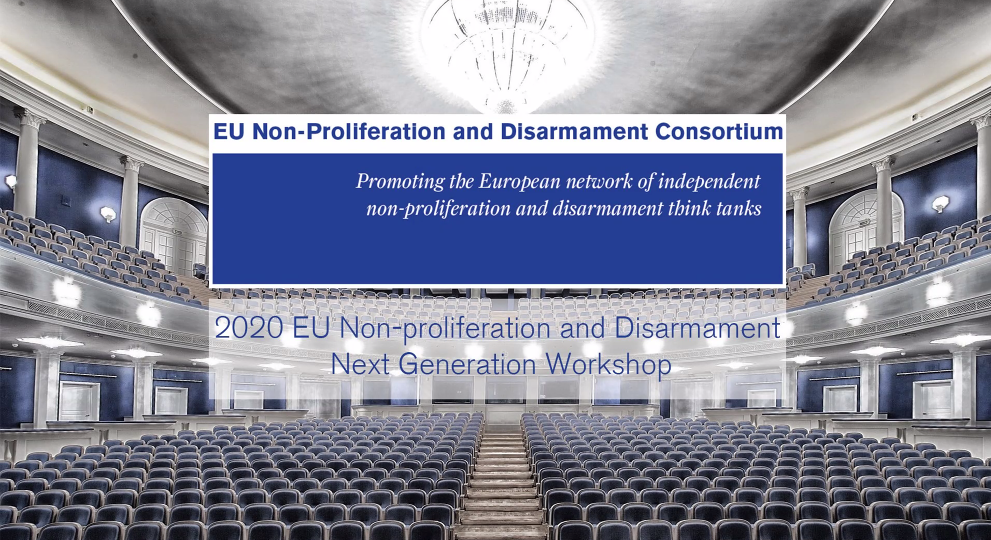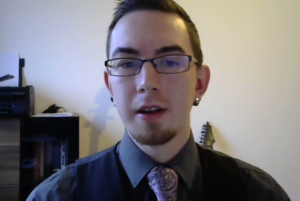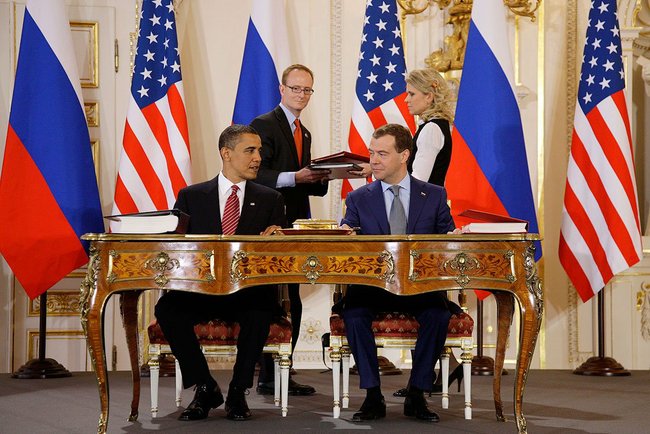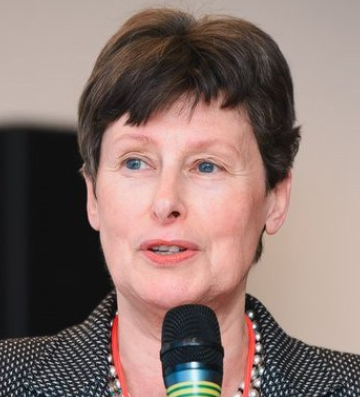
The situation today in arms control and non-proliferation requires a comprehensive reassessment of States' strategic interests and the weight those interests have in the feasibility of concluding future arms control agreements. This was the main takeaway from VCDNP Research Associate Noah Mayhew's remarks, delivered during the EU Non-Proliferation and Disarmament Consortium's Next Generation Workshop on 25 November 2020.

Mr. Mayhew spoke in a panel discussion at the workshop, alongside Naomi Egel (Cornel University) and Emily Ghadami (Irish Department of Foreign Affairs and Trade). The discussion was moderated by Michael Elleman (International Institute for Strategic Studies).
In his remarks, Mr. Mayhew addressed two kinds of challenges facing the global non-proliferation regime today: (1) rapidly evolving geopolitical realities; and (2) the effects of new and emerging technologies on the nuclear field. He expressed particular concern about the decline in priority that nations place on multilateral diplomacy and the effect that decline is having on establishing legally or politically binding restrictions on the military use of emerging technologies, such as in the cyber field.
In this regard, Mr. Mayhew made the following recommendations:

The workshop also featured VCDNP Senior Research Associate Dr. Hanna Notte, who opened the final panel of the day, which addressed regional threats to arms control and non-proliferation with remarks focused on the importance of US-Russian cooperation in the Middle East. Dr. Notte addressed two specific examples: Syrian chemical weapons and nuclear issues in Iran. Dr. Notte discussed the path from US-Russian cooperation to acute confrontation on these issues, suggesting three lessons:
She concluded by offering two concrete recommendations for US-Russian confidence building on these issues over the coming weeks and months.
First, regarding Syria's chemical weapons, Dr. Notte recommended that, even if Moscow refuses to engage on decisions resulting from the Organisation on the Prohibition of Chemical Weapons' (OPCW) Executive Council report on July 9 regarding Syria's declarations under the Chemical Weapons Convention, it could urge Damascus to work more seriously with the OPCW's Declaration Assessment Team (DAT), which would afford the organisation an opportunity to clarify questions on Syria’s declarations outside the scope of the July 9 decision. Since the DAT was established in agreement with the Syrian authorities, this should be an acceptable route for Russia.
Second, regarding the Iranian nuclear issue, she suggested that Russia, having shown an interest in discussing broader regional security issues, should be brought into a multilateral diplomatic effort to accompany any future nuclear diplomacy and return to the Joint Comprehensive Plan of Action with Iran under a Biden administration. That effort would need to address all regional states' concerns about ballistic missiles, proxy warfare, and other regional concerns unrelated to Iran's nuclear program.




By continuing to use the site, you agree to the use of cookies. more information
The cookie settings on this website are set to "allow cookies" to give you the best browsing experience possible. If you continue to use this website without changing your cookie settings or you click "Accept" below then you are consenting to this.